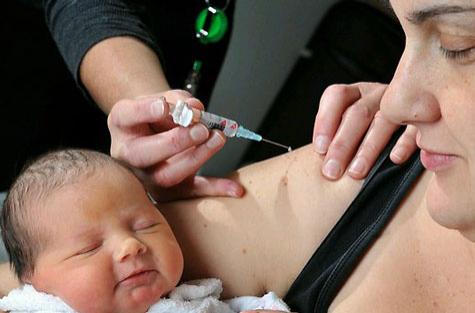A team of scientists led by the University of NSW found the emerging whooping cough strain was responsible for 84 per cent of cases since 2008, when the current epidemic started.
Associate Professor Ruiting Lan, from the university's School of Biotechnology and Biomolecular Sciences, said the findings of its two-year study suggested the current vaccination could be contributing to new and more dangerous strains of the potentially fatal disease.
The study, published in the Journal of Infectious Diseases, analysed about 200 samples of the bacterium responsible for whooping cough, Bordetella pertussis, from NSW, Victoria, South Australia and Western Australia, from 2008 to 2010.
Prof Lan said the current vaccine was effective against most forms of whooping cough, but a new strategy was needed combat the ongoing epidemic.
"The vaccine is still the best way to reduce transmission of the disease and reduce cases, but it appears to be less effective against the new strain and immunity wanes more rapidly," he said in a statement.
"We need to look at changes to the vaccine itself or increase the number of boosters."
About 38,000 cases of whooping cough were reported nationally last year despite the vaccine's high uptake in Australia.
This compared to 35,000 in 2009, according to the study.
The new strain has also been detected in other countries with a similar rate of vaccine uptake.
The current vaccination was introduced in 1997 following concerns about the side effects of the previous antigen.
Whooping cough is particularly dangerous in babies who are at greatest risk of infection until they are vaccinated at two, four and six months.
For further information visit:



















__small.png)










